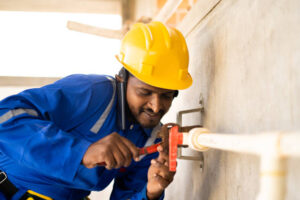Top 5 AC Repair Myths Busted: What Tampa Homeowners Need to Know

As a Tampa homeowner, your air conditioning system is crucial for staying comfortable during the sweltering summer months. However, misconceptions about AC repair can lead to costly mistakes and unnecessary stress. Let’s bust the top five AC repair myths and provide you with the facts you need to keep your system running smoothly.
Myth 1: You Only Need AC Maintenance Once a Year
Fact: While it’s true that a yearly maintenance check is important, in a place like Tampa, where the AC runs almost continuously, more frequent attention can be beneficial. Ideally, you should have your AC system serviced at least twice a year—once before the summer heat kicks in and once before winter. Regular check-ups can catch potential problems early and ensure your system operates efficiently all year round.
Myth 2: Bigger AC Units Are Better
Fact: It might seem like a larger unit would be more effective, but bigger isn’t always better when it comes to air conditioning. An oversized unit can lead to inefficient cooling, higher energy bills, and increased wear and tear. The key is to have the right-sized system for your home’s square footage and insulation. An HVAC professional can help you determine the best unit size for your needs.
Myth 3: If Your AC Is Running, It Doesn’t Need Repairs
Fact: Just because your air conditioning system is running doesn’t mean it’s running efficiently. Many issues can develop without immediately affecting performance. Strange noises, reduced airflow, or uneven cooling are all signs that your AC might need repair. Regular inspections and addressing minor issues promptly can prevent more significant problems and extend the life of your system.
Myth 4: You Can Fix AC Problems Yourself
Fact: While DIY projects can be satisfying and cost-effective, air conditioning systems are complex and require specialized knowledge and tools. Attempting to fix issues yourself can often lead to more damage and costly repairs. For most problems, it’s best to call a professional HVAC technician who has the training and experience to handle repairs safely and effectively.
Myth 5: Higher Efficiency Units Always Save Money
Fact: While high-efficiency units can lead to lower energy bills, they are not always the best choice for every situation. The initial cost of a high-efficiency system can be significant, and whether you’ll see a return on that investment depends on various factors, including how well your home is insulated and how often you use your AC. A professional can help you evaluate the overall cost-benefit and determine if a high-efficiency unit is right for you.

Conclusion
Understanding the truth behind these common AC repair myths can help you make informed decisions about maintaining and repairing your air conditioning system. Regular maintenance, correct unit sizing, professional repairs, and careful consideration of efficiency can all contribute to a more effective and cost-efficient cooling system. Keep these insights in mind to ensure your Tampa home stays cool and comfortable year-round.
FAQs
1. How often should I have my AC system professionally serviced?
It’s recommended to have your AC system serviced at least twice a year—once in the spring before the hot weather starts and again in the fall. This regular maintenance helps to identify and address potential issues before they become major problems.
2. What are the signs that my AC system needs repair?
Common signs that your AC system might need repair include strange noises, reduced cooling efficiency, inconsistent temperatures, and increased energy bills. If you notice any of these issues, it’s a good idea to contact a professional HVAC technician.
3. How can I improve the efficiency of my current AC system without replacing it?
To boost your current AC system’s efficiency, ensure that your home is well-insulated, keep air filters clean or replace them regularly, and make sure that vents and registers are not blocked. Regular maintenance and sealing any gaps or leaks around windows and doors can also help improve efficiency.







